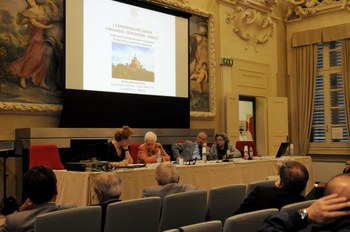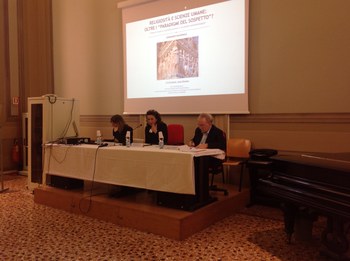Seminars and Conferences

L’esperienza religiosa. Linguaggi, educazione, vissuti
Seminar for the presentation and evaluation of a national exploratory research
University of Bologna, Department of the Arts, 24-25 September 2015
The Seminar focused its work on the first data report of an empirical research conducted in the years 2013/14. The research team, which was set up at the Department of the Arts (Moscato, Caputo, Gabbiadini, Pinelli, Porcarelli), administered a questionnaire on attitudes and opinions to 2675 adults selected on the basis of their presumed religious identity throughout the national territory. The empirical research followed a phase of study and theoretical research, which started in 2010 and was partially documented by several publications and by two previous Conferences held in Bologna in 2011 and 2012.
The questionnaire was built as a new tool, was conceived and formulated directly in Italian, and was intended for a specific population that is not commonly studied – at least, not at all in the pedagogical field. This is the reason why the research assumes an exploratory nature. The answers obtained from this significant sample constitute the first potential confirmation of the working hypotheses advanced also in theoretical reflection.

Religiosità e scienze umane: oltre i paradigmi del “sospetto”?
National multidisciplinary seminar
University of Bologna, 23-24 March 2017
The Seminar took place after several years of studies and research on religiosity and educational processes, topics that are gaining a centrale role within the contemporary context, characterized by complex socio-cultural phenomena and polymorphic anthropological dynamisms.
The Seminar aimed at consolidating and developing multidisciplinary sharing of research work on religiosity between the various areas of the human sciences, with a specific new focus on the field of religious sciences.
The seminar focused on the several "paradigms of suspicion" (old and new) that can still be traced in the various human sciences, in order to promote more appropriate categories of multidisciplinary reading. These categories could open new research paths and new possibilities for scientific debate on the theme of religiosity, on its formation and its connection with the artistic experience.